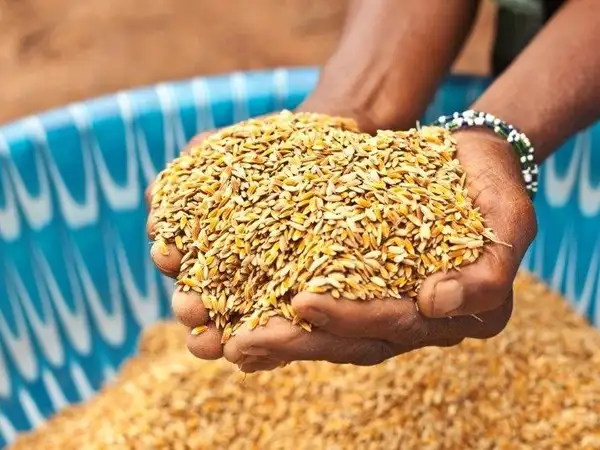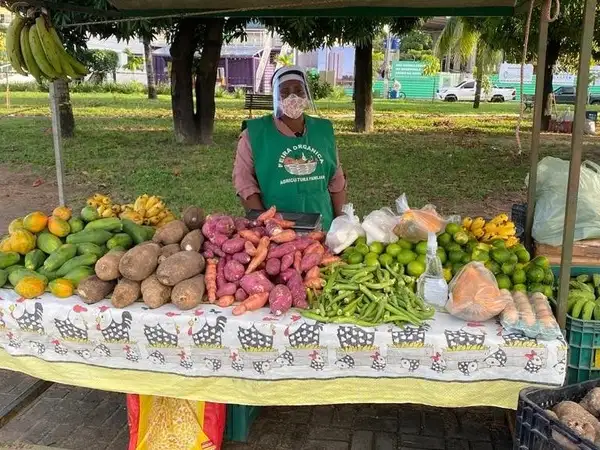Prayers on food and hunger
Pray with us for a fairer global food system where everyone has enough.


We need to be there for families experiencing hunger and malnutrition, to support communities to survive the food crisis that has already begun.
by Ruth Segal - Lead Analyst for Food Systems at CAFOD
As the conflict continues in Ukraine, rightly, the world’s attention is focused on the horrific humanitarian situation there. The fallout from this conflict also threatens the lives of many more people across the world, through its impact on the global food system.
Russia and Ukraine are major exporters of key staple crops, including wheat, barley and sunflower oil, and the conflict has led to huge price increases of these commodities. On top of that, Russia is a major exporter of fertiliser, and market disruption has increased prices. Because much agricultural production relies on inputs of synthetic fertiliser and pesticides, food prices are directly affected.
Low-income countries in the Middle East, the Horn of Africa and West Africa rely on wheat imports from Russia and Ukraine to feed their populations, making them especially vulnerable to price increases on global markets. Even though there is enough food to feed everyone, price increases and supply chain disruption have left these countries struggling to afford fertiliser for their farmers, or grain for their populations.
Even though there is enough food to feed everyone, price increases and supply chain disruption have left low-income countries in the Middle East, the Horn of Africa and West Africa struggling to afford fertiliser for their farmers, or grain for their populations.
Farmers around the world have been badly hit by the impacts of the pandemic and climate change. In the Horn of Africa, agricultural production has been affected by low rainfall over four seasons, resulting in the loss of livestock and severely reduced crop yields. These crises over the last few years have revealed the fragility of the global food system, with failed harvests and broken supply chains leaving many millions of people facing hunger. And as with all crises, the most vulnerable are hit hardest.
The Ukraine crisis demonstrates that national and global food systems are not resilient. It has thrown into sharp relief the need for transformational change to reduce the fragility of food security in many low-income countries, and their vulnerability to market shocks and volatility.
In Brazil, CAFOD partners the Land Pastoral Commission of João Pessoa (CPT-JP) responded to the Covid-19 pandemic by working with smallholder farmers’ associations, which won humanitarian contracts to deliver fresh, organic emergency food to people struggling, having lost their jobs in lockdown.
At the same time, their agro-ecological production methods helped to restore soils and biodiversity, and boost resilience to climate change. Family farmers were able to sell their produce even though markets were closed, and poor urban households had access to food. Together they created short food supply chains connecting rural communities to their urban neighbours, reducing hunger and supporting smallholder farmers’ incomes.
This localised action shows communities leading the way in tackling the problem, and we urgently need to scale up such responses, to create a wholesale shift in our globalised food system.


Paraíba in Brazil has become known as a leading example of economically viable, environmentally friendly farming.
In the short term, beyond doing everything possible to end the conflict in Ukraine, we need to act to prevent hunger and malnutrition in the Horn of Africa and elsewhere by stabilising global food prices and providing safety nets for those most at risk. This requires global cooperation through UN bodies like the Committee on World Food Security.
But longer term, we need to transform the food system away from being dependent on fertilisers and pesticides, long-supply chains, and global trade in a few staple crops.
We urgently need more investment in sustainable, climate-resilient, agricultural production in low-income countries, to ensure they are less vulnerable to market volatility and can grow more of the food they need themselves, where people need it.
Pray with us for a fairer global food system where everyone has enough.
The global food system is broken. It doesn’t work for those who work the hardest – small farmers – and it’s a major driver of the climate emergency.